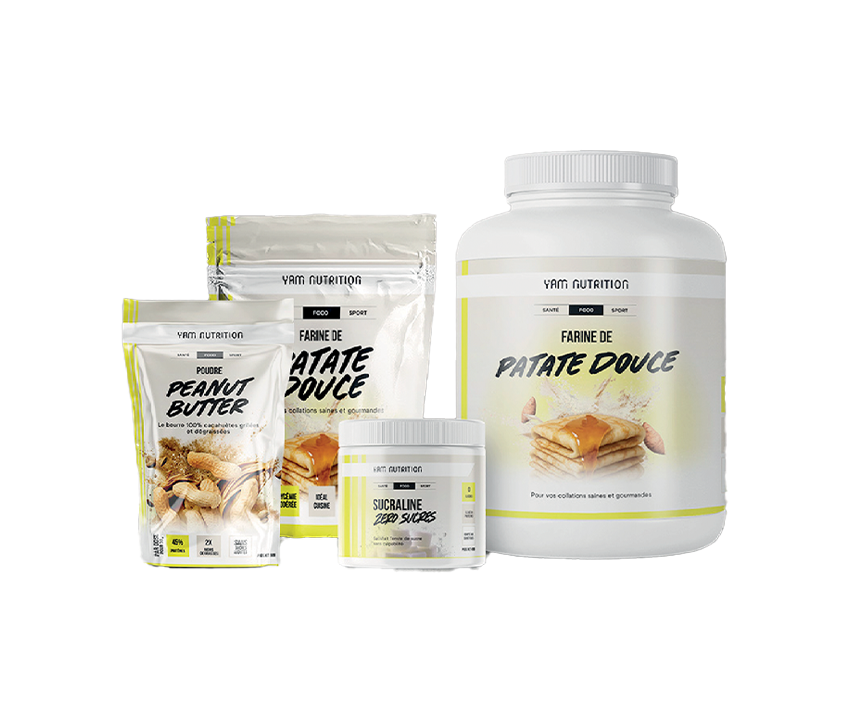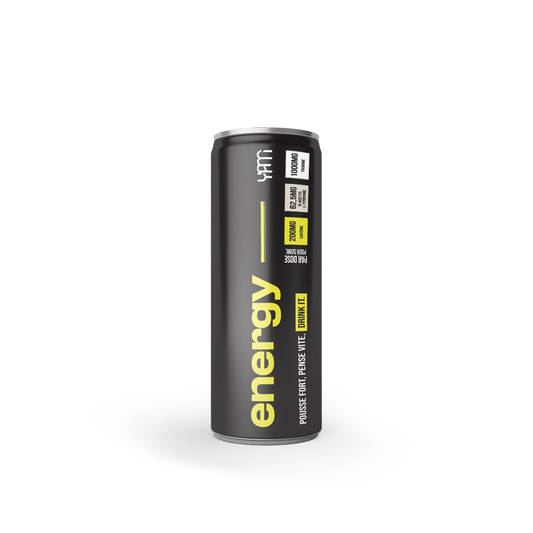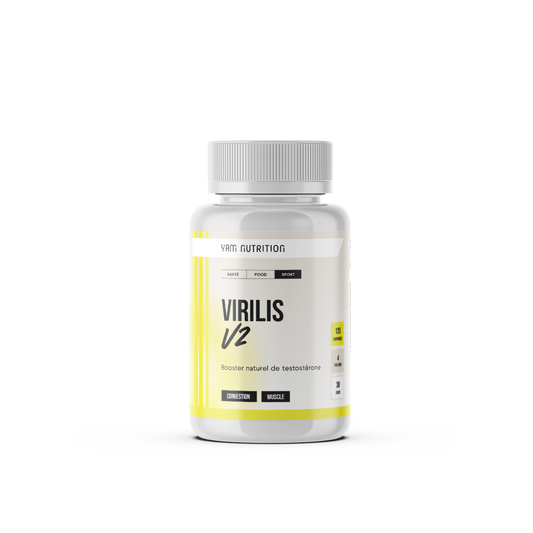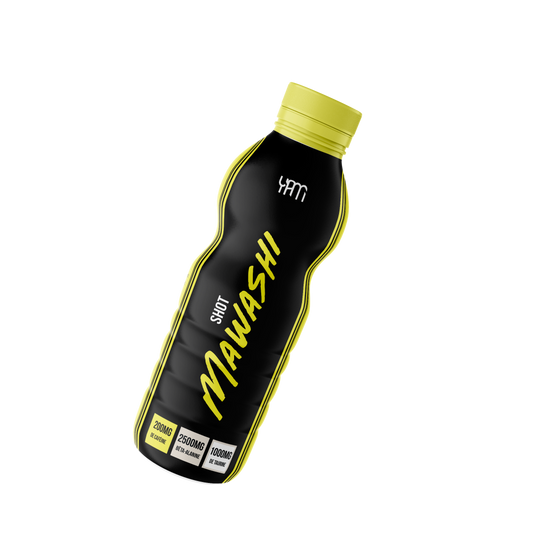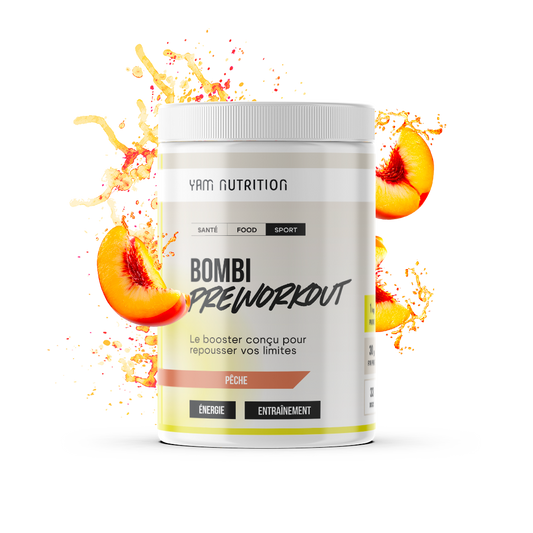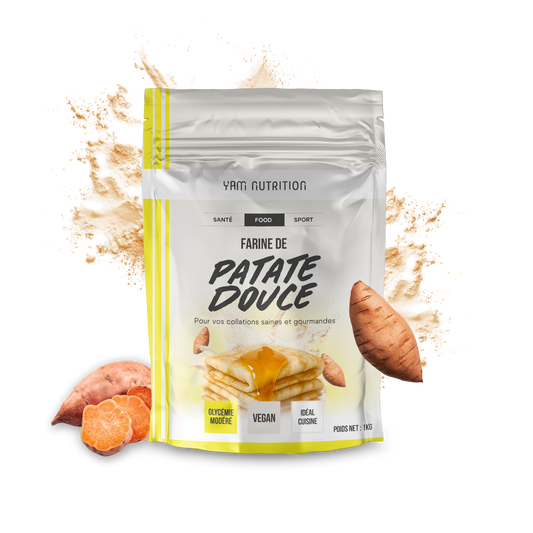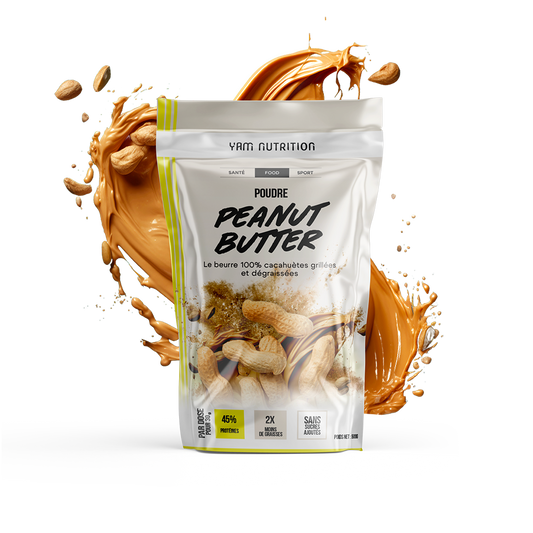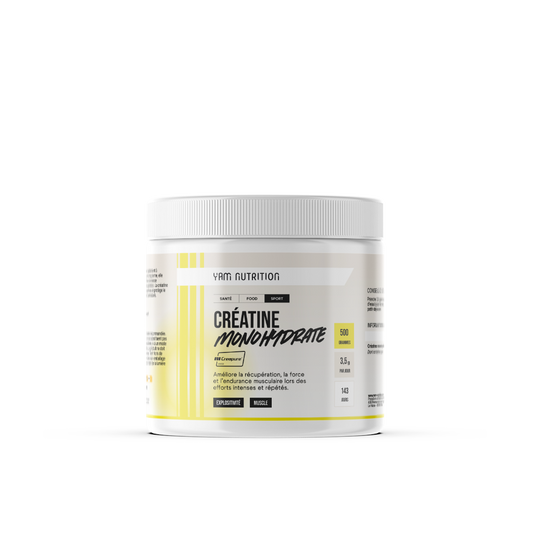How should you eat to gain muscle?

Sommaire
- Gaining mass and gaining lean muscle rely on two different types of diets.
- Calculate your calorie intake based on your daily energy expenditure to gain muscleCalculate your calorie intake based on your daily energy expenditure to gain muscle
- The three macronutrients and muscle mass gain, a question of balance
- Your diet must remain balanced during the mass gain period
- Big Yam, a versatile gainer for gaining muscle without excessive calorie intake
- What does lean muscle gain mean?
- Know and vary your food intake to gain muscle more easily
- Knowing your body and how it responds to food will lead you to great muscle gain.
- Bulking or building muscle? It all depends on your level of bodybuilding experience.
If there is one subject that interests all bodybuilding practitioners, whatever their level, it is that of muscle mass gain . For beginners, the topic is probably even more important than for high-level athletes, despite the fact that each of them is looking to gain muscle and muscle mass . In any case, the problem remains the same since it is about gaining muscle and volume, without gaining fat at the same time. At least, it is about gaining as little as possible, favoring the gain of lean muscle. In any case, the problem remains the same since it is about gaining muscle and volume, without gaining fat at the same time.
The energy drink 2.5x more caffeinated than average The natural testosterone booster The ultimate pre-workout booster for a killer boost
YAM Energy Drink
Sale price
From 2,50 €
Virilis V2
29,90 €
Sale price
29,90 €
Bombi Preworkout
Sale price
49,90 €
A priori, bodybuilders with long experience know their diets well and know how to gain muscle. Beginner bodybuilders know much less, obviously. Some bodybuilders will tell you that it is impossible to gain muscle without gaining some fat. Other bodybuilders will tell you that it is possible, but in this case, it is more a question of gaining lean muscle with many years of sports practice . These two methods of muscle growth (muscle gain or mass gain) each have their fans. Then, it all depends on your goal and how you want to develop your physique. These hypertrophy methods are similar in that your body and muscles need energy to perform exercises, but also to recover and stimulate muscle hypertrophy. The common thread here, again and again, is calories and macronutrient balance.
Gaining mass and gaining lean muscle rely on two different types of diets.
A priori, you can gain muscle mass fairly quickly with a high-calorie diet. But by definition, muscle growth is based on hypertrophy of the sarcomeres (the fibers themselves) and the sarcoplasm (the fluids containing calcium, glycogen, and other nutrients). It is therefore a complex system that must be discussed. An increased calorie intake is therefore necessary in all cases, but by how much? Both methods, based on rapid mass gain or on a slower muscle gain, each have their supporters. They are similar in that your body and muscles need energy to perform exercises but also to recover and stimulate hypertrophy . Initially, the common point here is, again and again, the calorie and macronutrient balance. The process and the way of gaining muscle then becomes more complex.
On the one hand, bulking up involves consuming a higher amount of calories compared to expenditure in order to promote weight gain (muscle glycogen accumulation) and post-workout recovery. On the other hand, muscle gain is based on a slightly higher intake of calories and protein in order to gain lean muscle. Overall, bulking up is about gaining muscle glycogen (volume of trained muscles). Gaining lean muscle is more about strengthening the muscle fibers already present in the bodybuilder. Naturally, not everything depends on diet, even if its influence is essential. But in both cases, energy management is the key to gaining mass and muscle...
Calculate your calorie intake based on your daily energy expenditure to gain muscle
Energy is key in bodybuilding and any other sport, except that the calories you burn are what allow you to gain muscle and body weight. To do this, you need to know two things: your basal metabolic rate (BMR) and your Daily Energy Expenditure (DEE). These energy losses refer to your daily activities and your exercise sessions. In both cases, these values can be calculated easily. Many online sites will give you all the necessary instructions to perform this calculation. Your basal metabolism corresponds to the total calories expended per day at rest (the DER) while the EFTE takes into account your physical activity. Once you have obtained the figures for the EFTE ( basal metabolism + physical activity), you will be able to determine your caloric needs based on the muscle mass gain you are planning. Obviously, the calories you consume come from the three macronutrients in your meals: carbohydrates, proteins, and fats. A certain balance between energy-providing carbohydrates and fats versus muscle-building proteins must be found to effectively stimulate muscle growth.
The three macronutrients and muscle mass gain, a question of balance
So, knowing your total energy expenditure isn't enough to tell yourself that you'll gain muscle mass from these nutritional and caloric energy intakes. Indeed, if you're looking to gain weight and muscle, you'll necessarily need to increase your caloric intake, but to what extent? Let's say that an intake of 300 to 500, or even 600 additional calories per day will allow you to gain strength and muscle mass. The heavier you are at the start of your mass gain, the higher your calorie surplus will be. Excessive calorie overload is pointless, as you won't be able to expend it during exercise or use it fully for post-exercise recovery.
Even in a very intense workout followed by a long post-workout recovery period, your calorie expenditure is unlikely to be significantly higher than in a maintenance or slow muscle growth condition. Conversely, if you eat well beyond your maintenance and growth nutritional intake, you'll easily store those calories as fat. It also depends on what you eat. Excess fat or carbohydrates will form more body fat than too much protein. Protein suppresses appetite more quickly, while sugars and fats make it easier to overeat.
To convince yourself, simply remember that insulin's purpose is to supply your liver and muscles with calories, and glucose in particular. The insulin released blocks the oxidation of fatty acids but increases their storage. This means that excessive calorie intake will result in fat gain, in other words, an energy reserve that is more or less difficult to release later.
Your diet must remain balanced during the mass gain period
When it comes to macronutrient balance, increasing carbohydrate intake is certainly the most effective way to go. Certain fats, such as MCTs, can also be combined with a mass-gaining diet to ultimately gain muscle. Naturally, high-quality protein intake must be maintained during this period of weight and muscle gain. Proteins and their amino acids contribute to muscle building after intense weight training. Slow-digesting carbohydrates (as well as sources of proteins complete ) should naturally be part of your plate at every meal, that's obvious. A reasonable increase in nutritional intake will allow you to limit unnecessary fat gain while promoting lean muscle gain and in force over several weeks.
Excessive calorie intake is pointless since you couldn't burn 1000 more calories in a day. Similarly, post-workout recovery doesn't take place over the 4 to 8 hours following your workout in the weight room, but over 3 to 4 days for your muscles. In this case, you'll also need to remain patient, both from a dietary and athletic perspective. Thus, you'll need to establish a concrete training plan over several weeks without trying to rush things. Otherwise, you'll tend to overeat and gain weight without achieving better results. Regarding mass gain, another question will easily arise. Given that it's not necessarily easy to prepare to eat 5 to 6 times a day, should you consider taking a gainer?
Big Yam, a versatile gainer for gaining muscle without excessive calorie intake
Obviously, a quality Gainer is not just a few hundred grams of maltodextrin combined with protein sources of average nutritional quality. In most cases, these types of formulas result in questionable high-calorie supplements. We often see a caloric overkill of 1000, 1200, 1500 or even 1800 calories per day, which inevitably leads to fat gain, to the detriment of muscle gain. And it is with this in mind that YAM Nutrition has developed its own Gainer, the Big Yam . It is simply a healthy combination of milk carbohydrates and sweet potato flour of optimal nutritional quality, providing a source of carbohydrates with a moderate Glycemic Index with a whey concentrate rich in essential amino acids and peptides (or Whey if you prefer...).
100 grams of Big Yam provides you with 340 calories, with 37 grams of protein and 28 grams of easily digestible carbohydrates. Our Gainer gives you the freedom to vary your calorie intake as you wish, without unnecessary calorie overload. Let's not forget the absolutely delicious taste of Big Yam, whether you choose the Biscuit or Chocolate flavor. We'll be sure to hear from you, both for the taste and its effectiveness in helping you gain mass!
What does lean muscle gain mean?
Aside from the well-known mass gain of young bodybuilders, gaining dry muscle (or lean muscle) is a different concept of muscle gain that is not necessarily well understood. As we have stated several times in this article, gaining mass often involves gaining fat since it is very difficult for an athlete to know from what point he begins to store calories as body fat. This is why the concept of gaining dry muscle will make more sense from the moment when bodybuilders already have an impressive muscle mass. In other words, the mass of the fibers and their glycogen reserves are already high.
In this case, mass gain is no longer necessary, but the gain of lean muscle, over a long period of time, will have a much greater impact on the physique in terms of physical development. This period of muscle gain will then be followed by a cutting phase if necessary. The big difference between mass gain and muscle gain is therefore based on carbohydrate intake, which can remain stable (depending on the energy needs of the muscles) and protein, which will increase in order to facilitate the gain of lean muscle. The daily diet will favor the intake of good quality complete proteins (eggs, white meat, lean red meat, fish, etc.). In terms of food supplements, whey will have its place in order to improve daily intake of pure protein.
Know and vary your food intake to gain muscle more easily
Generally speaking, most foods provide the three macronutrients (protein, carbohydrates, and fats) in varying amounts. But as you know, the amounts can vary depending on the foods considered. Some grains and pulses, for example, will be richer in carbohydrates, fiber, vitamins, and minerals, while lean meats will mainly provide protein and minerals. On the other hand, some oilseeds and legumes contain a moderate amount of carbohydrates, while they also provide essential omega-3, omega-6, or 9 fatty acids, depending on their type. Avoid minimizing the importance of these fats; they will allow you to gain muscle and mass more easily by stimulating muscle growth and energy.
Knowing your body and how it responds to food will lead you to great muscle gain.
It is therefore up to you to know your body and its reactions before organizing your meals in order to estimate what your carbohydrate, protein and fat intake will be more or less accurately. Over the years of training, you will notice that your body and your muscles react in a certain way, depending on what you feed them. Therefore, try to remember the essential principles in order to improve your diet, as you train and recover after exercise. Well-chosen food supplements will help you progress more quickly in muscle gain (protein powder, omega 3, specific supplements (Naturabolic, Virilis V2) and strength gain (creatine monohydrate).
Bulking or building muscle? It all depends on your level of bodybuilding experience.
To summarize, let's say that there are two distinct methods for gaining muscle. Mass gain focuses on carbohydrate intake for energy release and post-workout recovery. Protein and micronutrients (vitamins, minerals) should not be neglected. On the other hand, gaining lean muscle assumes that you already have a significant muscle mass so that you can favor proteins, without needing a high amount of carbohydrates to release energy. Everything will therefore depend on your bodybuilding level and your athletic goal. Over time, you will end up realizing that it is not necessarily a question of gaining mass or lean muscle but above all of knowing your metabolism in order to more accurately assess what your carbohydrate and protein intake should be in order to gain muscle in the long term...
YAM Nutrition
Eric MALLET
Spécialiste en Nutrition Sportive
